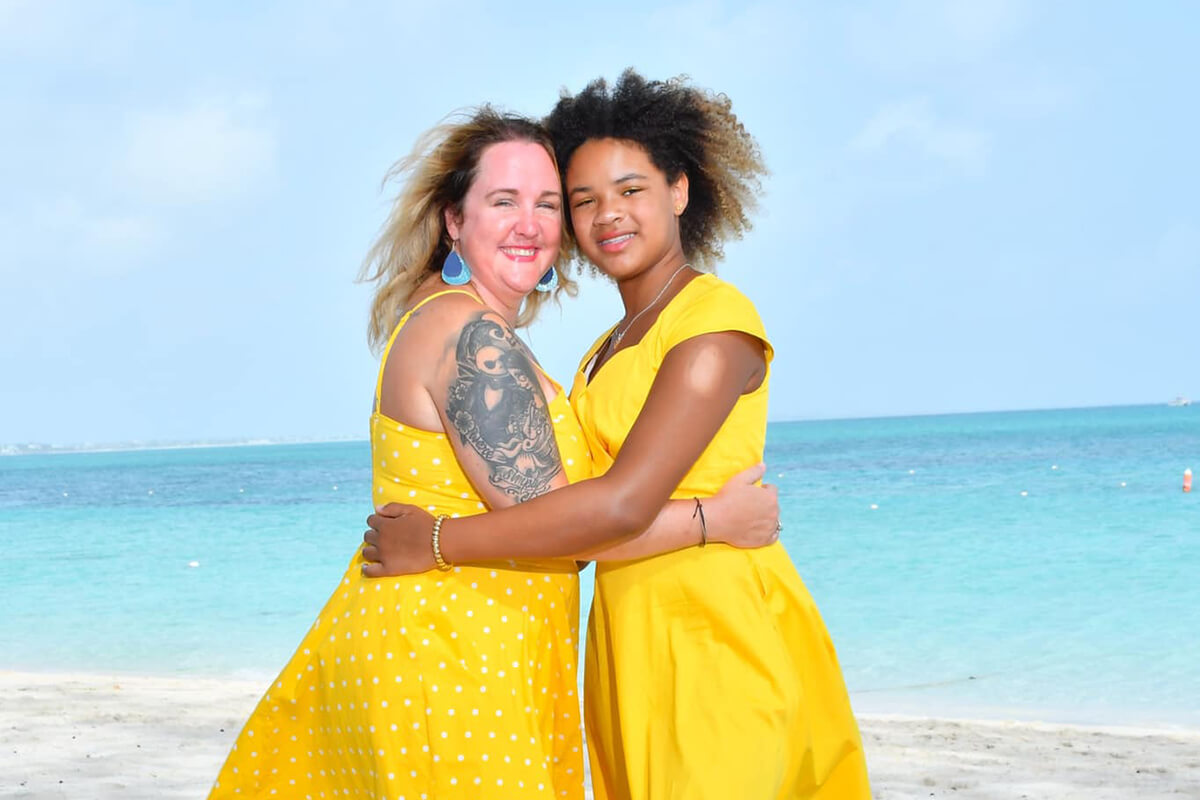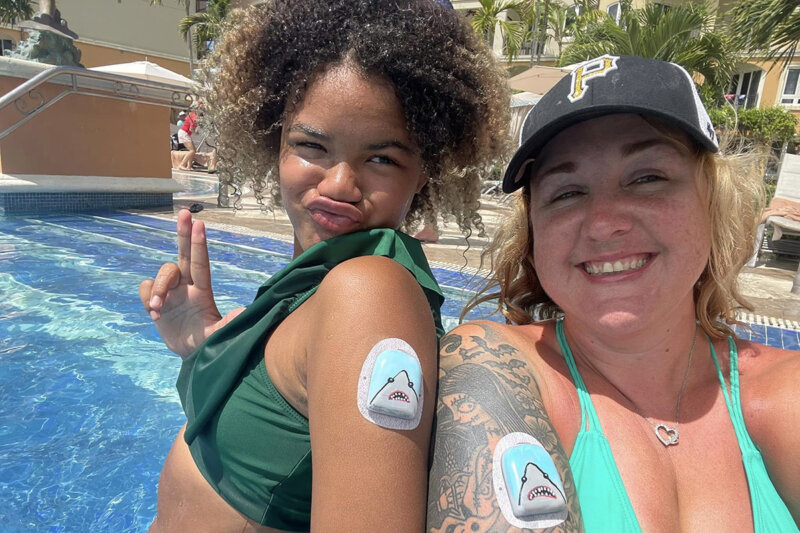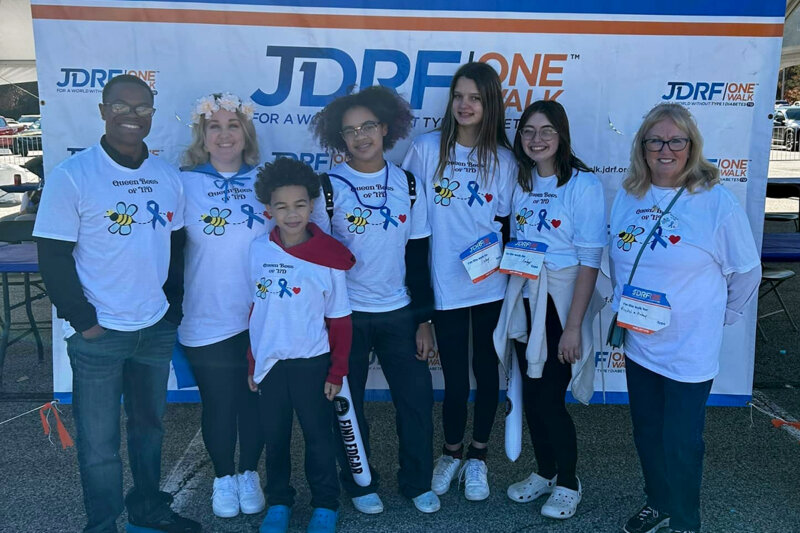
My name is Krystal and on Mother’s Day this year, I will be celebrating my 30th diaversary.
I was diagnosed in 1993, just a few months after recovering from chicken pox. My mom knew something was wrong—she worked in a pediatrician’s office, and she knew the symptoms of type 1 diabetes (T1D): frequent urination, constant thirst, and fatigue. It was her knowledge of the symptoms that caught my diagnosis before I got too sick and ended up in diabetic ketoacidosis (DKA).
My diagnosis was an adjustment for everyone in the family. Having to carb count and finger prick AND give myself multiple injections a day was rough, to say the least. Add normal teenage hormones to the mix and I will just say they weren’t the best years of my life.
Now, I have my own 14-year-old child with T1D. I can understand her frustrations. And her anger. And the burnout. T1D takes a toll on our mental health, but here is my story and how I manage it, as a person living with T1D, as a T1D mom, and as a mother-daughter T1D team!
My Daughter’s Diagnosis
Because I have T1D, I was able to enroll my daughter, Ambyr, and my son, Keegan, in T1D screenings starting when they were 3 years old. We were about three years into our screenings when, in 2015, my daughter’s blood screening came back positive for two autoantibodies.
What did this mean?
This meant she was already in the early stages of T1D and was at a greater risk of developing T1D in the next five years. Immediately, I was in full-blown panic mode. How could this happen? How could I have prevented this? Why did the one thing my daughter have to inherit from me have to be this horrible, awful disease? My heart broke.
Immediately, we started cutting back on the juice and the sweets, even though I knew it wouldn’t change or help anything. We were told by the hospital staff at Children’s Hospital of Pittsburgh to come back in 3 months for additional testing and for an OGGT (Oral Glucose Tolerance Test) to determine the next steps, to see if anything had progressed, and to prepare to be admitted. So, on the morning of February 16, 2016, we made the drive back to the city for the OGGT and by lunchtime that same day, Ambyr had an official diagnosis of type 1 diabetes.
I will say that Ambyr’s diagnosis was much less traumatic than my own. She had no symptoms because we caught it early enough. She got right into the groove of carb counting, checking her blood sugar, and everything else that was now required of her. I like to think it was because of my mentoring, mothering, and knowledge, but I know it’s also because she is a fighter. And she wasn’t going to let this stop her from anything.
Teen Tips for Positive Mental Health
We were—and still are—both able to do the things we love which, if you ask Ambyr, is shopping. And eating sushi. And making TikToks together. And getting Starbucks together especially, according to her, if it isn’t her money.

When I asked Ambyr about living with T1D, she acknowledged that there are some struggles and obstacles but said, “You get used to it. It becomes part of your daily routine in life.”
As far as what’s like having me, a fellow T1D, as her mom she said, “It’s good because my mom has had it for 30 years, so she knows what to expect and she knows what helps me with some things. My mom reminds me to take my insulin because I forget about that sometimes.”
Ambyr also enjoys reading books related to T1D such as Bittersweet by Winnie Mack and The Truth According to Blue by Eve Yohalem. Being able to relate to characters in a book, TV show, or movie is what helps Ambyr’s mental health. When she was younger, she would have pod painting parties with her friends. They would get together at our house and paint her Omnipods. When we would go on family vacations, she and I would do the same. It was a fun and creative way to wind down and make our diabetes supplies more fun…and bearable.
Another family thing we do every year is celebrate our diagnosis day. This is what we in the T1D community call a diaversary. We reflect on the last year and years since our diagnosis. We reflect on the challenges, and we celebrate the successes. It’s a mentally good way to turn a not-so-happy memory into something fun!
Avoiding Burnout
Speaking for myself though, and my mental health, I can say that I have my moments of burnout. Who doesn’t? It’s a lot.
The mental load is sometimes just too much. What should we eat for dinner today? How many carbs is it? If we go for a walk after dinner how much should we adjust our insulin dosage? What if I or Ambyr decide to run, or go for a bike ride instead of a walk? Oh, if we do, then we should eat more proteins or give ourselves less insulin so we don’t drop too low and risk going into a hypoglycemic episode. What about tomorrow? My Omnipod 5 expires at dinner time and I’m supposed to go out for dinner after work so should I just change my pump now? Or should I bring it with me to work and change it during the day?
It’s a lot.
But, despite all of the daily decisions I have to make (some of them being life or death decisions), I don’t let T1D control me or take anything away from my wonderful life. I keep my mental health generally intact by enjoying all of the things a person without T1D enjoys. We go out to dinner. We go on vacations. We go to the movies. I binge-watch TV shows. I drink wine on our deck with friends and family. The only difference between me and a person without T1D is that I have to take a few extra minutes to give myself insulin based on the carbs I will be eating (or drinking in some instances).
The Importance of a Support System

I have a great husband. Two amazing kids. A wonderful support system with my parents, my family, friends, coworkers, and the T1D community in Pittsburgh (shout out T1Yinzers!). My advice to anyone with T1D, or caring for someone with T1D, is to use the resources available to you. Get involved in your local Breakthrough T1D chapter by volunteering. Start a team and sign up for the One Walk—it’s the best day and one of our family’s favorite events. Volunteer whenever and however you can. Surround yourself with people who get you and who can relate to you and your experiences—they are good for your mental health and for your soul! And remember to still enjoy everything.
A diagnosis of T1D isn’t a death sentence by any means. Breakthrough T1D has come such a long way since my diagnosis in 1993 and I can’t wait to see where we end up another 30 years from now!
Written by Krystal Clay